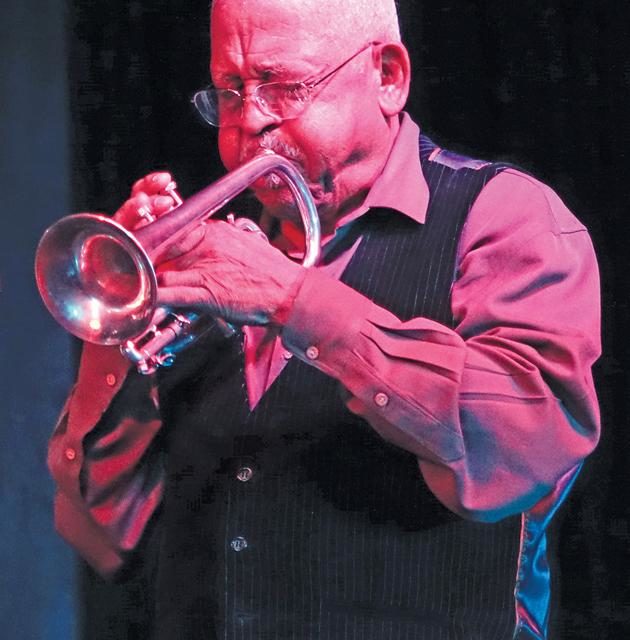The West Coast does not often figure in general discussions of jazz history, with the exception of the so-called cool school of playing from the 1950s and 1960s. But the music has a long history in the state’s urban centers, especially its advances in the more avant-garde forms. One of the prime movers of new musical developments over the last decades has been cornetist, trumpeter, composer, and educator Bobby Bradford, who moved from Texas to Los Angeles at age twenty-one and has lived and worked there ever since.
Originally from Mississippi, Bradford became infatuated with bebop music while growing up in Texas. There he met the pioneering saxophonist Ornette Coleman, who would become one of the prime movers in the revolution that became known as “free jazz,” in which improvisation proceeds without any preconceived formal melodic or harmonic structures. Coleman also moved to Los Angeles, and Bradford, who was exploring similar means of expression, ended up in his quartet. He had to go into the army before Coleman’s band recorded its influential classic albums but eventually rejoined it for a short period in New York, appearing on two records, before returning to California.
In Los Angeles Bradford developed a deep friendship and a unique musical collaboration with another Texas transplant, virtuoso saxophonist and clarinetist John Carter, one that would thrive for two decades until Carter’s death in 1991. Their joint quartet featured intricate original melodies and arrangements that were finely honed though practice and performance, with a distinctive sound that crystalized when Carter gave up all his other horns to concentrate on the clarinet. A year spent in Britain playing with some radical improvisers provided Bradford with new sources of inspiration that he was able to explore more fully when he teamed up again with Carter.
Bradford has led several bands, most notably his Mo’tet, in a quartet featuring woodwind wizard Vinny Golia, and teaching at Pomona College and elsewhere.
He has continued to develop his own distinctive way with the cornet while retaining an unchanging musical core. Bradford’s playing is immediately recognizable: he attains a burnished, almost vocal sound, attacking notes in different ways to imbue each with emotional qualities. He eschews virtuosic, multi-note displays, building his lines from melodic cells that he repeats, reshapes, and then reforms into completely new ones infused with passion and soul.
This year’s Edgefest at the Kerrytown Concert House features way-out music from the West Coast. Bradford performs there in a quartet with Golia on October 18.


